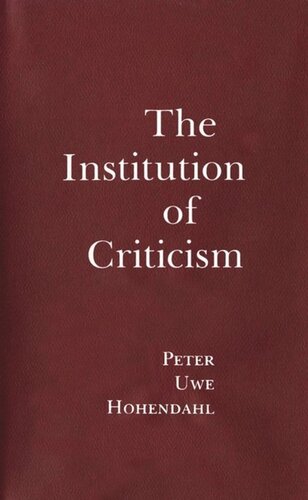

Most ebook files are in PDF format, so you can easily read them using various software such as Foxit Reader or directly on the Google Chrome browser.
Some ebook files are released by publishers in other formats such as .awz, .mobi, .epub, .fb2, etc. You may need to install specific software to read these formats on mobile/PC, such as Calibre.
Please read the tutorial at this link: https://ebookbell.com/faq
We offer FREE conversion to the popular formats you request; however, this may take some time. Therefore, right after payment, please email us, and we will try to provide the service as quickly as possible.
For some exceptional file formats or broken links (if any), please refrain from opening any disputes. Instead, email us first, and we will try to assist within a maximum of 6 hours.
EbookBell Team

4.7
66 reviewsGerman radicals of the 1960s announced the death of literature. For them, literature both past and present, as well as conventional discussions of literary issues, had lost its meaning. In The Institution of Criticism, Peter Uwe Hohendahl explores the implications of this crisis from a Marxist perspective and attempts to define the tasks and responsibilities of criticism in advanced capitalist societies. Hohendahl takes a close look at the social history of literary criticism in Germany since the eighteenth century. Drawing on the tradition of the Frankfurt School and on Jürgen Habermas's concept of the public sphere, Hohendahl sheds light on some of the important political and social forces that shape literature and culture. The Institution of Criticism is made up of seven essays originally published in German and a long theoretical introduction written by the author with English-language readers in mind. This book conveys the rich possibilities of the German perspective for those who employ American and French critical techniques and for students of contemporary critical theory.